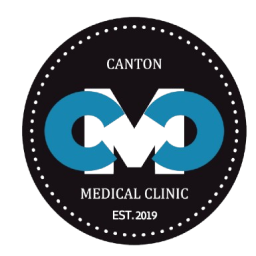Benefits of Quitting Alcohol

Staying sober has its benefits. We know it sounds cliche and you are probably wondering if this blog post will deliver the regular unsolicited advice for quitting alcohol to improve your life.

Staying sober has its benefits. We know it sounds cliche and you are probably wondering if this blog post will deliver the regular unsolicited advice for quitting alcohol to improve your personal life, but this is true and completely based on scientific facts.
In addition to giving you sound advice, we are going to use scientific facts on what exactly happens to your health and well-being when you quit drinking alcohol.
Interested? Read on.
Stop Drinking Alcohol
A recent study conducted by the American Society of Clinical Oncology (ASCO) revealed that over 70% of adults are unaware that alcohol consumption is a major risk factor for cancer.
Shocking! We know. Studies further estimate that alcohol is the third largest cause of cancer deaths and 5% of global cancers are linked to excessive alcohol consumption. Studies also reveal that individuals consuming at least 2-3 alcoholic beverages per day are 70-80% more likely to develop colorectal cancer.
In this blog post, we are going to examine the health risks and consequences of heavy alcohol consumption.
Risks of Alcohol Consumption
Heavy drinking and the lifestyle associated with it dramatically increases the risk of developing the following serious conditions:
- Cancer
- Stroke
- Cirrhosis of the Liver
- Depression and Anxiety
- Arrhythmias
- Digestive Issues
There is light at the end of the tunnel for heavy alcohol users. Quitting alcohol is the most effective way to prevent or recover from these diseases. Your health markers and overall mental health improve dramatically when you abstain from heavy alcohol use.
Lowering the Risk of Cancer
Heavy alcohol intake is proven to be a risk factor in the development of gastric cancer. Acetaldehyde is a metabolic byproduct found in alcohol which is a known human carcinogen, a substance causing cancer, that irritates and disturbs the stomach lining. This causes issues such as gastric cancer and gastritis. Quitting alcohol consumption will help you in preventing this life-threatening disease.
Improving Memory and Brain Function
Heavy alcohol use causes damage to brain function and memory. Alcohol damages an area of the brain called the hippocampus, which is responsible for learning and memory management. Heavy alcohol use causes the hippocampus to shrink, adversely affecting those functions. As the hippocampus shrinks, there is an increase in memory loss. Fortunately, this process is reversible. Research has shown that minimizing heavy alcohol intake and staying sober for several months can reverse the adverse effects on memory and brain function.
Improving the Quality of Sleep
Alcohol adversely affects your sleep by hindering the ability to achieve deep sleep throughout the night. The effects of alcohol also make it challenging to fall asleep, disturbing your sleep/wake cycles. Abstaining from alcohol will improve your sleep pattern and remove the need to feel intoxicated before bed. Alcohol dependency must be challenged as quality sleep is an essential part of a healthy lifestyle and adds years to your life.
Enhanced Mental Health and Functions
Alcohol consumption plays a major part in worsening mental health conditions such as depression, schizophrenia, anxiety, and bipolar disorder. Alcohol can cause changes to brain chemicals, making it very challenging to achieve consistent mental wellness.
Unfortunately, it is not uncommon for those suffering from mental health challenges to turn to drink to numb their symptoms. However, it is an alcohol-free lifestyle that improves an overall sense of well-being.
Quitting Alcohol Might Help
Heavy alcohol consumption is one of the riskiest habits you can have for your health. It is common for people to turn to alcohol to distract themselves from the stress and mental health challenges they endure. While it may be a quick fix, the damage caused to your brain and health will only create more significant health problems in the future.
Avoid getting into the habit of alcohol consumption to ensure long-term health and well-being.
< Return to Blog